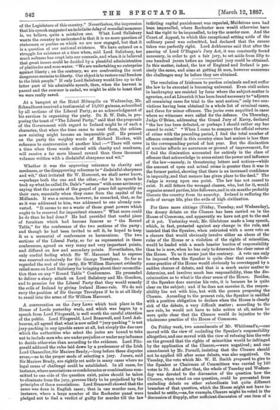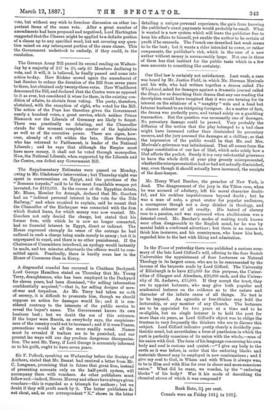On Friday week, two amendments of Mr. Whitbread's,—one moved with
the view of excluding the Speaker's responsibility altogether, and one moved with the view of refusing him the veto on the ground that the rights of minorities would be infringed by the application of the Closure,—were negatived; and one amendment by Mr. Parnell, insisting that the Closure should not be applied till after some debate, was also negatived. On Tuesday, the veto which Mr. W. H. Smith proposed to give to the Speaker or Chairman of Committees was carried by 160 votes to 70. And after that, the whole of Tuesday and Wednes- day was devoted to the discussion of the question how the Closure, when voted on one question, could be prevented from excluding debate on other subordinate but quite different branches of that question, which the House might not have in- tended to settle,—es, for example, Closure might be voted in the discussion of Supply, after sufficient discussion of one item of a
vote, but without any wish to foreclose discussion on other im- portant items of the same vote. After a great number of amendments had been proposed and negatived, Lord Hartington suggested that the Closure might be applied to a definite portion of a clause up to any specified word, bat not covering any ques- tion raised on any subsequent portion of the same clause. This the Government undertook to embody, if they could, in the resolution.



































 Previous page
Previous page